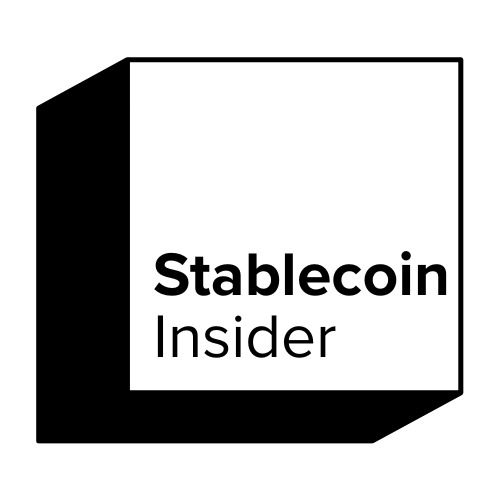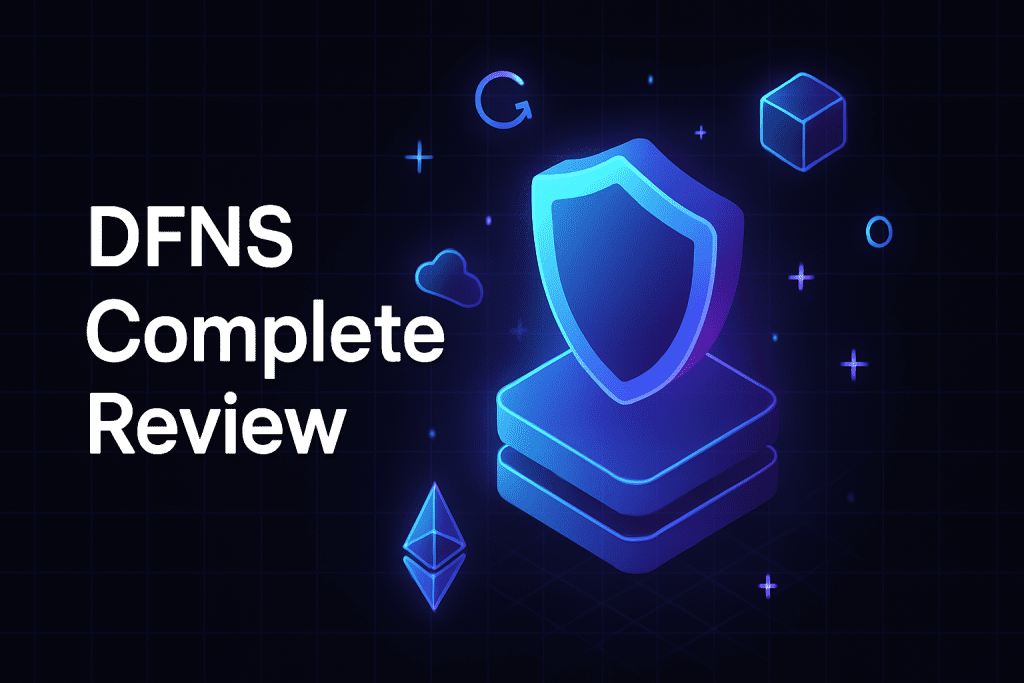As digital assets continue to rise in value and utility, the demand for secure, scalable wallet infrastructure becomes more urgent than ever. DFNS enters the scene as a leading solution for developers and enterprises seeking to integrate secure Web3 wallets without compromising usability or compliance. This article dives deep into DFNS, examining its technology, use cases, pricing, and why it’s making waves in the crypto infrastructure space.
Key Takeaways
- DFNS is a decentralized custody infrastructure provider offering Wallet-as-a-Service.
- It uses advanced Multi-Party Computation (MPC) technology for keyless, secure transactions.
- Geared toward developers, institutions, and applications needing secure, user-friendly Web3 wallets.
- Offers scalable, API-first, cloud-native architecture.
- Regulated in France and operates under SOC 2 Type II standards.
What is DFNS?
DFNS is a cybersecurity company focused on digital asset security through its Wallet-as-a-Service platform. Founded with the mission of democratizing access to secure Web3 wallets, DFNS targets developers, Web3 startups, institutions, and fintech companies. With a robust API-first architecture, DFNS empowers clients to build secure wallet solutions tailored to their applications.
Company Snapshot
- Founded: 2020
- Headquarters: Paris, France
- Key People: Clarisse Hagège (CEO), Franck Lebouchard (Board Member)
- Mission: To make digital asset security accessible to all via a keyless, programmable wallet infrastructure.
DFNS Technology Breakdown
At the heart of DFNS lies cutting-edge technology designed for both security and developer usability. By taking advantage of Multi-Party Computation (MPC), DFNS eliminates the need for private key storage while ensuring that no single party can compromise wallet access. Its cloud-native, API-driven infrastructure allows seamless integration with Web3 applications of all sizes.
Key Features
- MPC Technology: Ensures no single point of failure and enables keyless security.
- API-First Design: Simplifies integration for developers.
- Cloud-Native Infrastructure: Scales with demand, reducing operational overhead.
- SOC 2 Type II & GDPR Compliance: Meets stringent security and data protection standards.
DFNS Wallet-as-a-Service Explained
DFNS provides developers with a comprehensive Wallet-as-a-Service platform that’s modular, secure, and easy to integrate. Unlike traditional wallets, DFNS enables the creation and management of wallets without exposing private keys. Developers can embed these crypto wallets in their apps, ensuring frictionless onboarding and secure asset management.
How It Works
- Keyless wallet creation and management via APIs.
- Biometric and passwordless authentication supported.
- Built-in user onboarding flows and recovery tools.
DFNS also offers SDKs and a set of UI components that allow teams to create branded wallet experiences without building from scratch.
Supported Chains and Assets
DFNS offers growing multi-chain support to cater to the diverse needs of Web3 developers and businesses. While its initial focus was on Ethereum-based chains, DFNS continues to expand its integrations with top-tier networks. This enables developers to offer cross-chain functionality within their apps.
Currently Supported Chains
- Ethereum
- Polygon
- Avalanche
- Binance Smart Chain
DFNS is also actively working on supporting Solana, Optimism, and other layer-2 solutions to ensure broader compatibility in the near future.
DFNS Use Cases
DFNS’s wallet infrastructure is versatile, fitting a wide range of applications from consumer wallets to enterprise-grade custodianship. Its secure and programmable design allows it to serve as the backbone for multiple Web3 use cases.
Popular Applications
- DeFi Apps: Integrate secure wallets for lending, staking, and trading.
- Crypto Exchanges: Use DFNS as the core wallet engine.
- NFT Platforms: Create secure and easy-to-use wallets for users.
- Web3 Gaming: Provide in-game wallets for asset storage and trading.
- Institutional Finance: Use as a compliant and auditable solution for digital asset custody.
Security Features
Security is at the core of DFNS’s value proposition. Rather than rely on hardware or private key backups, DFNS takes a software-first approach using MPC and security frameworks. Its infrastructure is designed to defend against both external threats and internal mishandling.
Built-in Protections
- End-to-end encryption of all wallet interactions.
- Biometric authentication and passwordless login support.
- Role-based access controls to limit sensitive operations.
Secure enclave usage further enhances DFNS’s ability to isolate and protect sensitive computations, especially for enterprise clients.
Developer Experience
DFNS shines in its commitment to offering a seamless experience for developers. Everything from the documentation to the SDKs has been designed to accelerate integration while reducing friction and risk.
Tools and Resources
- Developer-friendly APIs with high availability.
- SDKs in JavaScript, TypeScript, Python, and more.
- Sandbox environments for pre-production testing.
Support is provided through technical documentation, GitHub repos, a Discord community, and customer success teams for enterprise clients.
Compliance and Regulation
Operating within regulated jurisdictions, DFNS is one of the few Wallet-as-a-Service providers to emphasize stablecoin compliance. It meets both industry and legal standards, which is a major advantage for institutional users.
Regulatory Highlights
- Licensed in France under financial regulations.
- SOC 2 Type II certification ensures best practices in security.
- GDPR-compliant architecture for user data protection.
KYC/AML compliance workflows are also available for apps that require identity verification for end-users.
DFNS Pricing Model
DFNS offers flexible pricing that accommodates both startups and large-scale enterprises. Their pricing is based on usage tiers, with free options for early-stage builders and customized packages for businesses with high transaction volumes.
Pricing Overview
- Free tier: Access to basic features and limited usage.
- Growth tier: Scalable pricing for growing applications.
- Enterprise: Custom integrations, SLAs, and dedicated support.
By offering modular pricing, DFNS ensures accessibility without compromising on features or support.
Pros & Cons
Pros
- Keyless, secure wallet infrastructure via MPC.
- Developer-first API and SDK ecosystem.
- Compliant with international security standards.
- Scalable and reliable architecture suitable for growth.
Cons
- Multi-chain support still expanding.
- Tailored mostly to developers and enterprises.
- Out-of-the-box UI components are minimal.
Conclusion
DFNS is emerging as a leader in decentralized wallet infrastructure. With its emphasis on security, compliance, and scalability, it is an ideal partner for teams building on Web3. As more chains are integrated and the ecosystem matures, DFNS will likely become the gold standard for digital asset custody infrastructure.
Whether you’re developing a DeFi app, launching a crypto exchange, or building the next big NFT platform, DFNS provides the tools and trust you need to scale securely.
Read Next:
FAQ
1. Is DFNS truly non-custodial?
Yes. DFNS uses MPC, which means there are no private keys held by the user or DFNS, making it fully non-custodial.
2. What chains does DFNS currently support?
DFNS supports Ethereum, Polygon, Avalanche, and Binance Smart Chain, with more on the roadmap.
3. Can I use DFNS to build a mobile wallet?
Absolutely. DFNS provides SDKs and APIs that are compatible with mobile development environments.
4. How does DFNS compare to Fireblocks or Coinbase Wallet SDK?
DFNS focuses more on decentralization and developer-friendliness, while Fireblocks is more institutional-focused. DFNS also provides a broader keyless architecture compared to Coinbase SDK.
5. Is DFNS suitable for NFT platforms?
Yes. DFNS allows easy wallet integration for NFT minting, trading, and storage.
6. How does DFNS handle wallet recovery?
DFNS uses MPC-based recovery mechanisms that avoid seed phrases while enabling account restoration.
7. What programming languages are supported for integration?
DFNS offers SDKs in JavaScript, TypeScript, Python, and other common developer stacks.
8. How secure is MPC compared to hardware wallets?
MPC is considered highly secure and more flexible for Web3 applications, offering distributed key control and resistance to single-point failure attacks.

